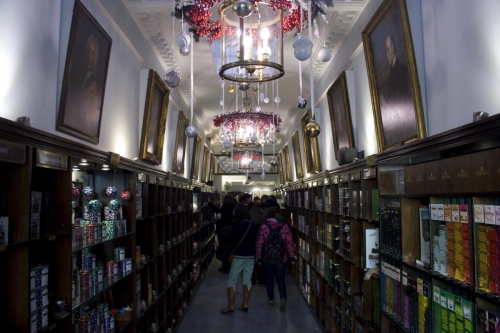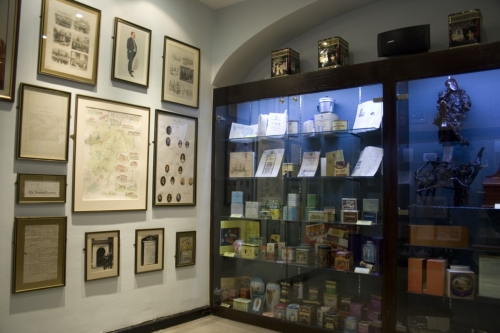One of London’s smallest museums can be found in one of its oldest and smallest retail outlets, and is devoted to that most English of pastimes, the cup of tea.
For a shade over 300 years, there has been a tea shop in this narrowest of narrow shops, which apart from the novelty of its size and shape, also makes it probably the oldest retail store in London to have had the same occupant.
It was the year of our Lord 1706 when Thomas Twining bought what was at the time known as Tom’s Coffee House and converted it into a tea shop instead. Over the years, there were a small number of extensions, not that you’d know it to look at the size of the place!
Today, it is still a tea shop, and the long alleyway within is a riot of colours and smells as boxes of tea, bags of tea and coppers of tea entice you down towards the rear.

Down here is a bar that wouldn’t look out of place in a posh hotel, but it serves teas. All sort of teas, and while I was there, the lady behind the counter was a veritable encyclopaedia of the history of tea. No question the sippers put to her seemed to faze her at all, even the ones that had me surprised at their obscurity.
However, it is also down here that the small museum can be found. Well, a couple of glass cases and a wall of posters. It might not qualify as a proper museum in some minds, but then again, what is it that turns a glass cabinet into a museum?
It’s a delightfully eclectic collection ranging from the oh too obvious packets of tea, to notebooks and documents from the early years of the Twining tea company.

As a shop selling what was initially a luxury product, it is not a surprise that their documented archives include all the sorts of famous names that seem to crop up everywhere. I sometimes wonder how famous people in the past had time to become famous, so busy they seemed with socializing in every single building that is still standing today.
Notorious tea drinker, Dr Johnson was also said to be a friend of the founder’s grandson.
Being the luxury product it was, a range of lockable tea caddies is on display with an explanation of how they would be usually kept by the mistress of the house and only she would have the key to their precious contents.
More humbly, I also learnt that TIP as in to offer a tip to the staff serving you stands for To Improve Performance.
At the time of its founding, shops didn’t have street numbers, so the tea shop was known by the sign of the golden lion, which can still be found above the doorway, surmounted by two reclining Chinese figures.

You can find this quirky homage to tea at what is now known as 216 Strand, opposite the Royal Courts of Justice.
The museum is free to visit — and is open normal retail store hours seven days a week.
And finally: Having visited a museum devoted to tea, you probably want to visit a museum devoted to teapots. Won’t you?







Yes it’s an excellent place to visit- you can also pick a tea bag of your choice and drink the tea there, free of charge (I buy most of my tea there, but there is no obligation to purchase) and I agree the staff are charming.
Nice piece. One minor error: “to insure promptness” is a spurious folk etymology (as are almost all alleged acronym derivations for pre 20th century words) – see http://www.snopes.com/language/acronyms/tip.asp